“I have no special talents. I am just passionately curious.” — Albert Einstein
Curiosity lights up when we are in a playful mood, when we witness something surprising or marvelous. We experience wonder, we feel drawn in, and we feel a desire to understand something more deeply.
And when we’re feeling reactive, stressed or upset, it’s not surprising that curiosity can feel far away. Curiosity’s cousin— analysis— might show up to explain things so we can feel in control again.
There is a profound difference between approaching things with a strategic mind (seeking a certain aim or outcome, or intending to strengthen existing beliefs), and being willing to have an encounter that’s out of our control– and potentially disturbs the order of our inner kingdom.
So, what makes it possible to shift out of a stance of “I need to know why this is happening,” or “I need to make this feel better,” toward a willingness to simply be with what’s arising in me?
To “be with,” in this case, means to accompany myself on an inner adventure, rather than to scrutinize or manage my experience. If I’m not with myself (aware, receptive, grounded), coming up against the edges of my comfort zone will likely create significant anxiety and block curiosity.
Curiosity can be seen as the attitude of being interested in the truth of how I operate, and in my experience in the moment. The good news is, that, as I cultivate my ability to be present in the moment with myself and to turn toward my experience, openness and curiosity often follow.
And of course my inner critic will likely follow too— telling me to stay away from the destabilizing territory it is starting to sniff out. As a Nine, my critic likes to emphasize how getting more in touch with myself and my wants is sure to disconnect me from others and will destroy my life. It will perform a blanket shut-down of true contact with myself rather than allow an experience that seems a threat to (inner) state security.
In the Russell and Lillian Hobans’ children’s story, Bread and Jam for Frances, Frances exclusively prefers to eat bread and jam for its consistency- she always knows what she’s getting and she’s always pleased. But when she gets only that for every meal, she finds herself increasingly displeased. Our natural skepticism about unfamiliar or unreliable experiences has deep roots.
Looking Beyond the Biased Data
In finding that the earth wasn’t the center of the universe, Galileo’s curiosity led him into certain truths that were not only destabilizing for his world view (literally and figuratively), but profoundly for those of the broader culture as well. Our understanding of our own inner cosmology can be as, or more, arcane as Galileo’s contemporaries’.
When we see or experience something that doesn’t fit our current star-map of who we are, we often conveniently overlook said data. We “cherry pick” the evidence that supports our usual operating system and its conclusions. For example, as type Six, in order to stay vigilant and to see the world as inherently unsupportive, I might omit from my body of evidence, or see as a rare exception, significant periods of time where I am actually safe and supported. Conversely, as type Seven, I might omit the down-sides and danger that may be present in favor of confirming that life is here to be savored.
When the difficult data can’t be, or won’t be, overlooked, when our lenses can’t take it out of our field of vision (due to death, loss, confrontation, etc.), we get upset and reactive. In states like this, many aspects within us rise up to protect the old order. Our instincts protest. Our critic directs. Our type structure amps up. These all stand up to insist on our usual assumptions, to borrow a sense of stability in times of upheaval. It can be quite hard to feel curious in times like these.
Like for type Four, when in a fight with my partner, I’m coping with my fear of abandonment, following my need to see what’s missing that could redeem the dynamic, and being filled with my determining emotions that tell me they are my true read on reality. In a moment like this as a Four, that I feel my partner hates me is far more convincing than any evidence to the contrary. And I am not likely to feel curious in real-time about what led me to jump to that conclusion.
Curiosity is Calling
As life would have it, curiosity is not actually so far away, even in reactive states. Curiosity is part of our nature. When we slow down and get present, it can spontaneously arise.
When it doesn’t come easily, we can prompt ourselves with words like, “I wonder….” Even when your mind is busy with narrative about the who-what-and-why of a situation, the spirit of the words, “I wonder…” can help us recognize that our conditioned patterns are running us, and observe that we’re not currently feeling curious. This is a great step— being aware that we’re in our own soup allows us to start to wonder about our soup!
If I truly want to see things freshly in a moment like that, I can support myself by going back to the other two keys of inner work: cultivating awareness (grounded, receptive, presence), and receiving and accompanying my reactions (turning toward myself in my difficulty). If I am able to show up and open my heart toward myself, I can then begin to sincerely wonder about my experience.
After becoming present and receptive, I might conjure up a “wondering question” to help me inquire more deeply into a moment that feels tight or un-curious. Here are some examples:
- This is interesting. I’m surprised how strong a reaction I’m having. I wonder what important theme it’s touching on?
- I wonder how much of this I am willing to let myself experience? I wonder if I can allow it for one full minute?
- I wonder what impact it might have if I allowed myself to feel my body sensations a little more directly right now?
- I wonder what’s trying to wake up in me through this? May I notice which aspects of me are welcoming this awakening and which are rejecting it?
- What might allow me to support myself in staying with this a bit longer? I wonder what new territory wants my attention?
- What am I telling myself might happen if I let this come through?
- Who in me is curious about this experience?
Sometimes answers may come readily. More often, it is the shift in my approach that allows me to simply stop resisting what’s arising in me. This typically allows things to unfold intelligently, rather than to fester or stay stuck in me.
The Ego is Not Curious
Our ego’s usual mode is to preserve its sovereignty. In a certain way it is trying to “save” your life over and over in the way it thinks necessary for your survival or well-being. It believes you have it to thank for getting you this far in life. It offers a type of certainty and predictability, which, as humans, appeals to us. It gives us orientation. The Three feels confident when she is a doer and a leader. The Eight can count on his own truth and strength. The Two can rely on the understanding that she is loving and helpful.
Unfortunately, the clinging to certainty, to the person we tell ourselves we have to be (“I’m loyal”), and to how the world is supposed to work (“Hard work pays off”), doesn’t actually leave us more grounded or founded in any lasting way.
We are afraid that if we were to suspend the certainty of the ego’s way and enter freshly into our experience in the moment, we might lose our identified traits (doing, strength, helpfulness, etc.), and we might lose our existential footing altogether. “If I’m not good as I’ve understood it, then who am I at all?” the One might say.
It takes guts to look into our experience without relying on our usual filters. And while there is almost a guarantee that we will at some point run into “disturbing” material (disturbing to our egos and our stories), there can also be found there a reliable balm in true intimacy with ourselves that helps to bring a new kind of foundation and security. One where I begin to contact the me who is beyond my identifications and my world view. One where I begin to trust my own nature and capacity more.
- What helps you shift from a mindset of sticking with usual beliefs to opening up to what is really happening in the moment?
- What is your biggest obstacle to allowing this shift?
Please share your reflections below in comments.
To review this series, click the links below.
Part 1: Introduction – THREE KEYS FOR INNER WORK
Part 3: Responding to Reactivity
Part 4: Getting Curious

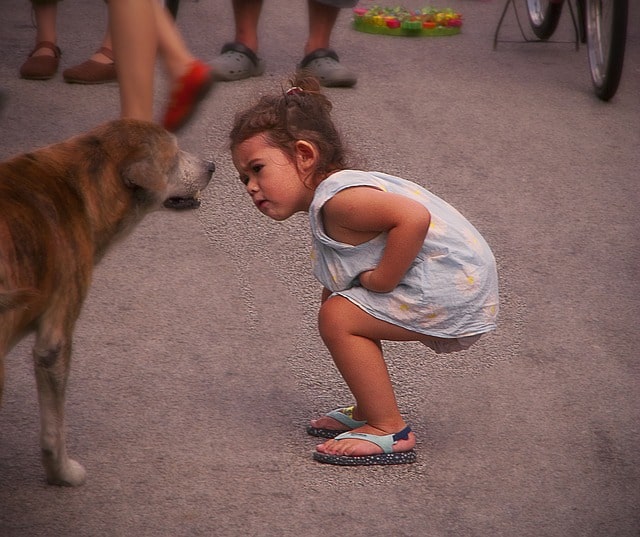

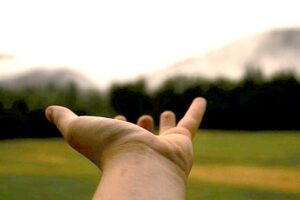
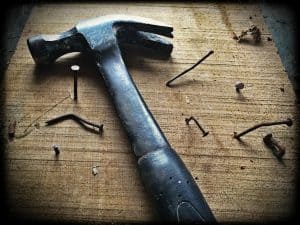

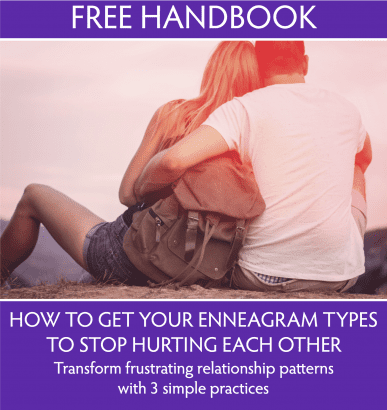

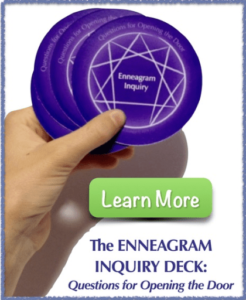

3 Responses